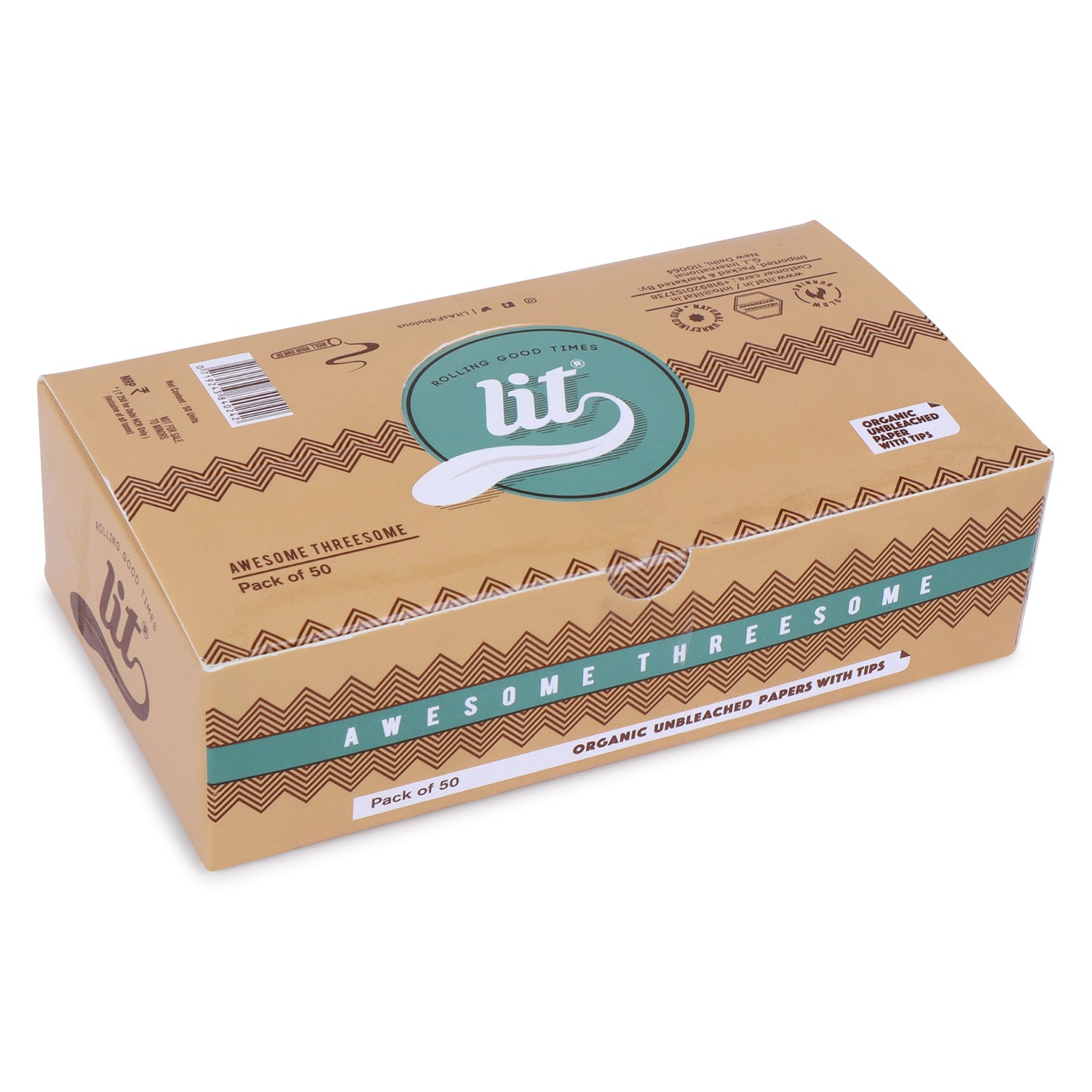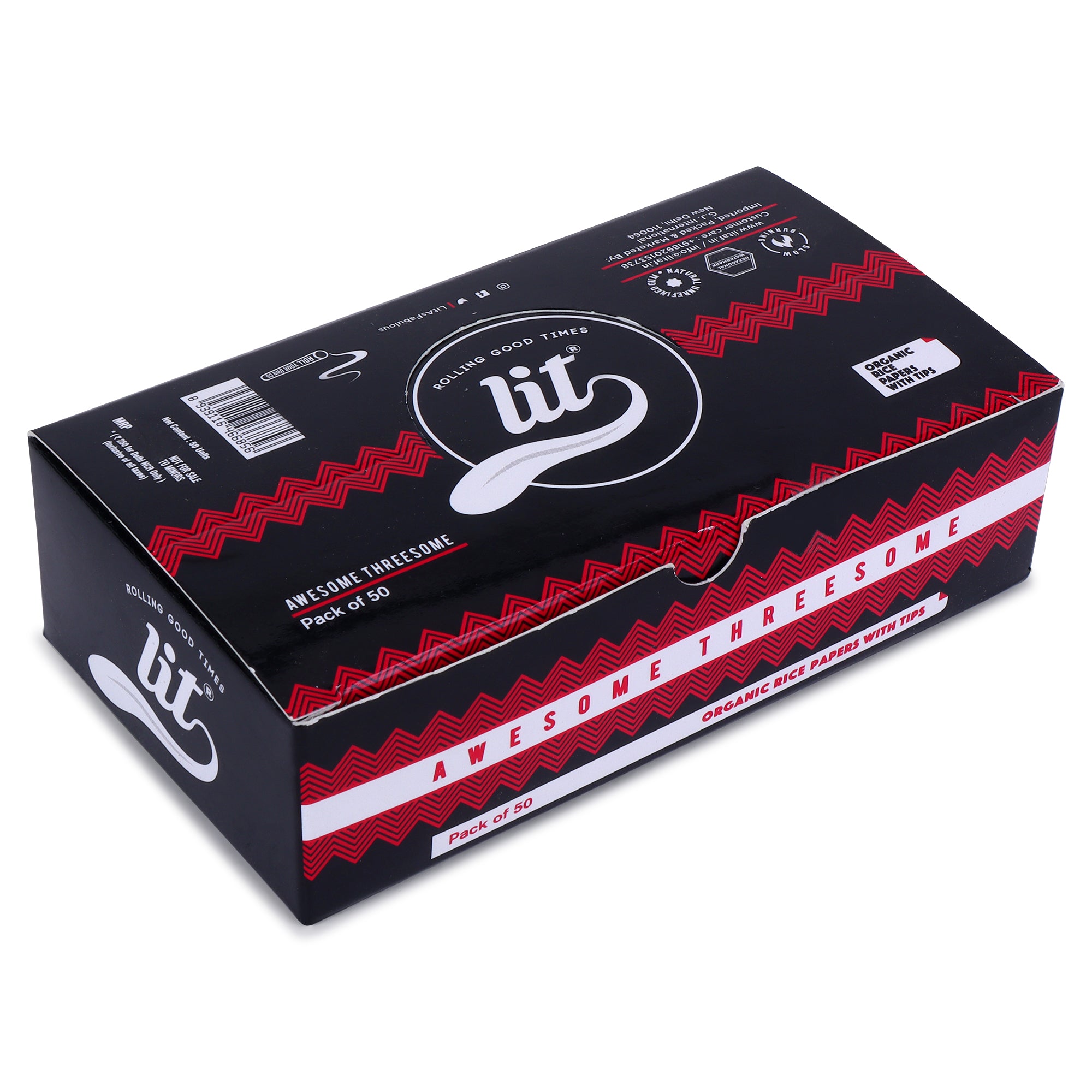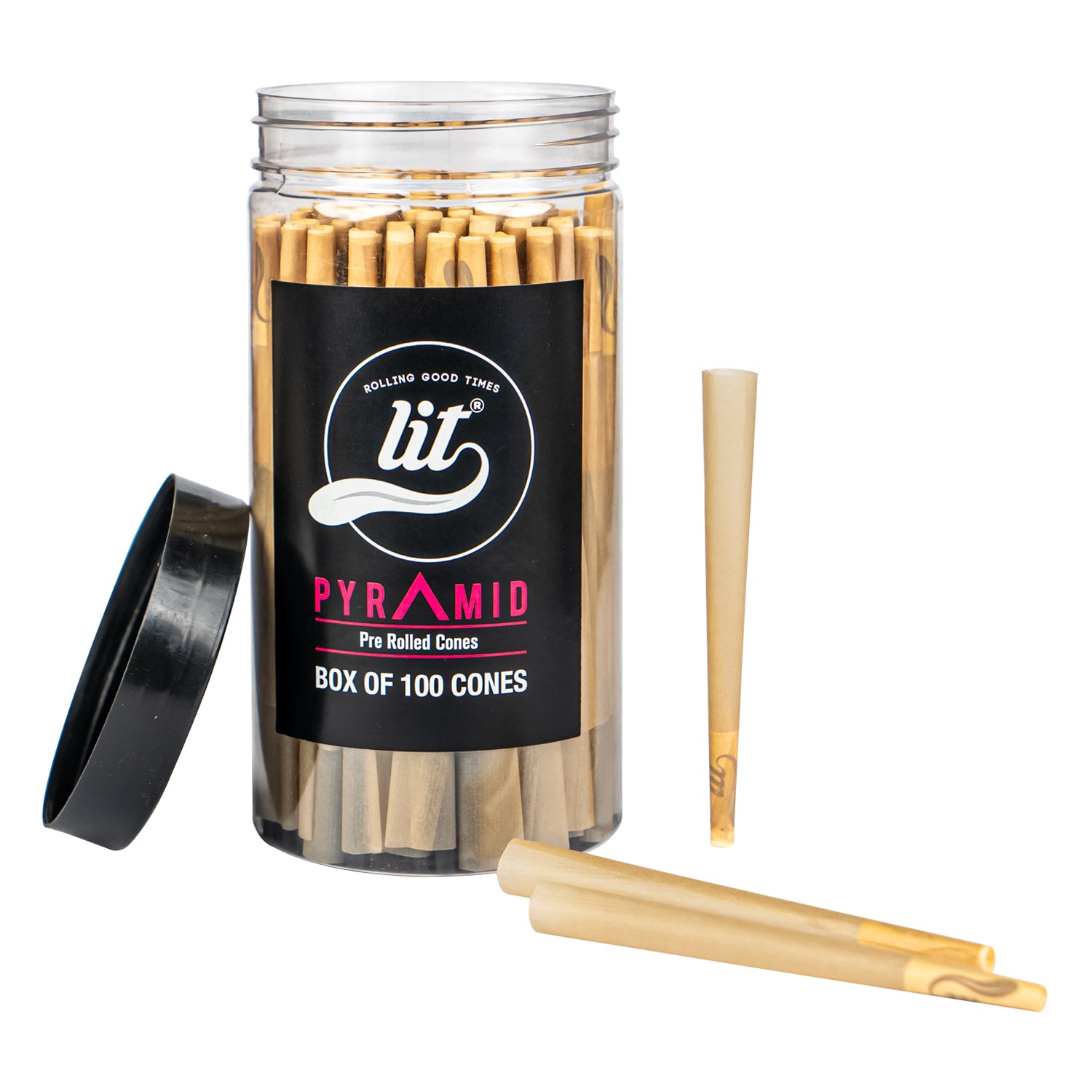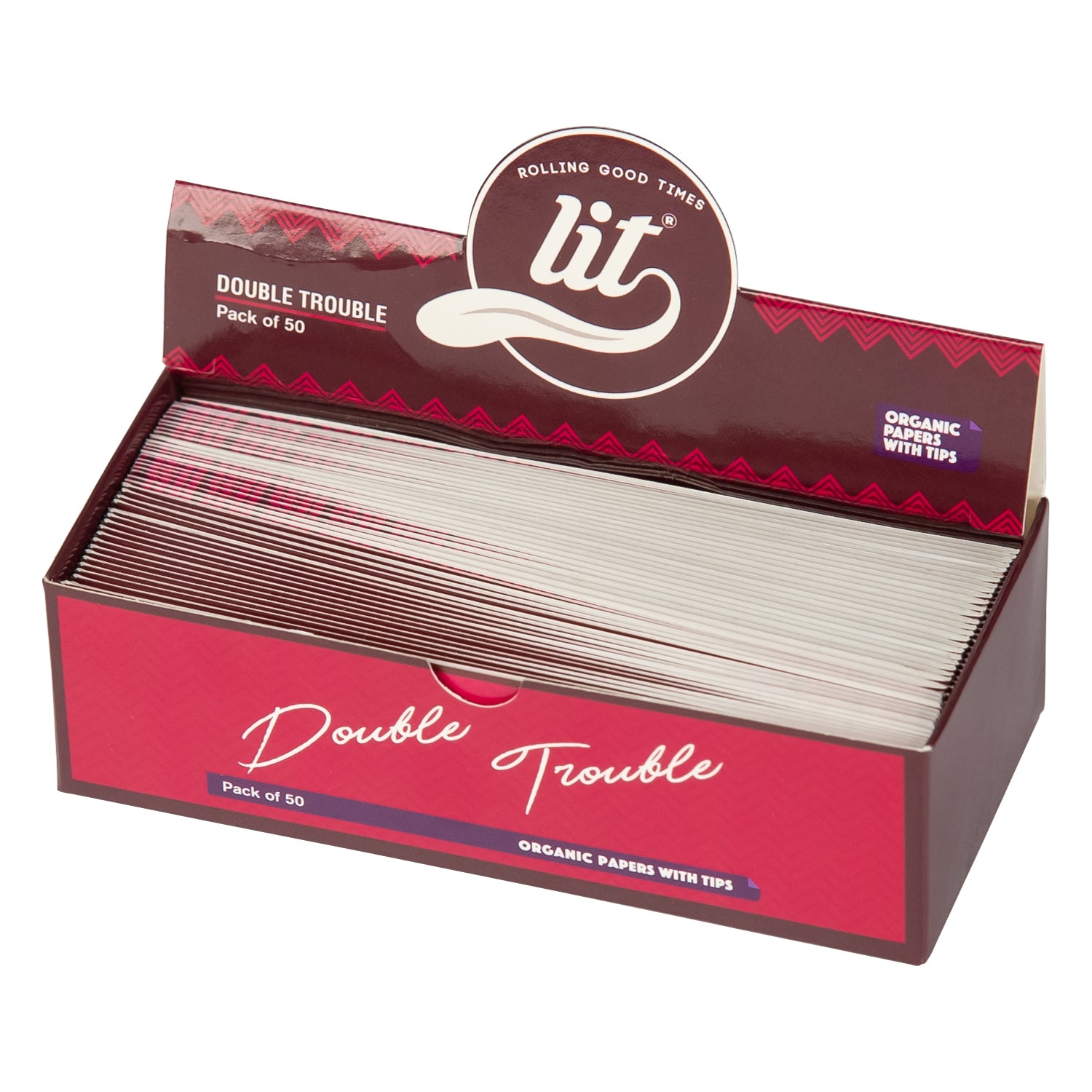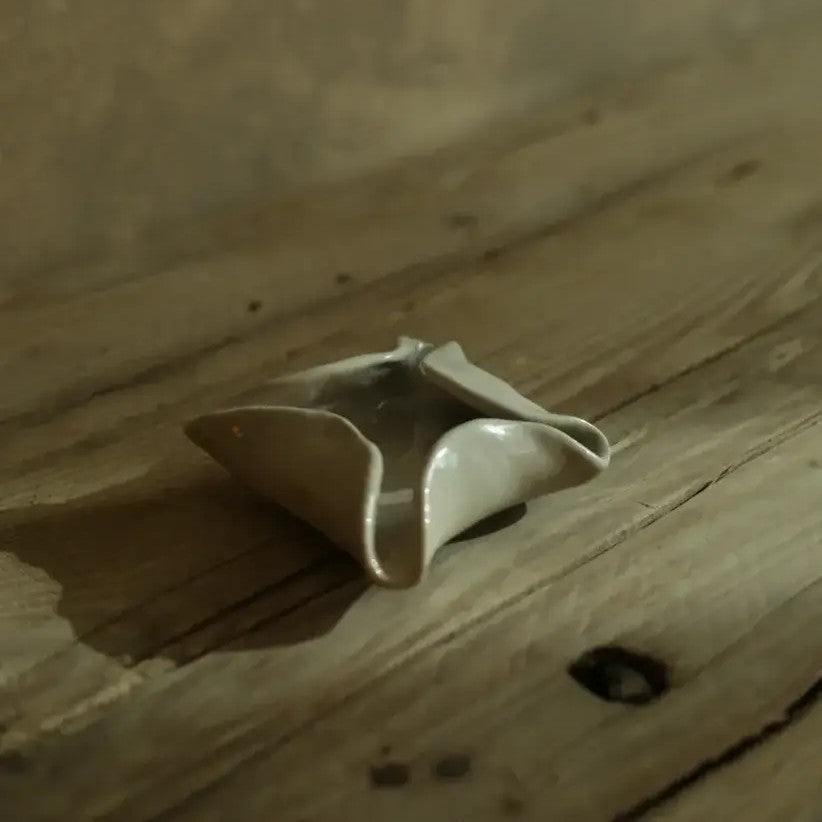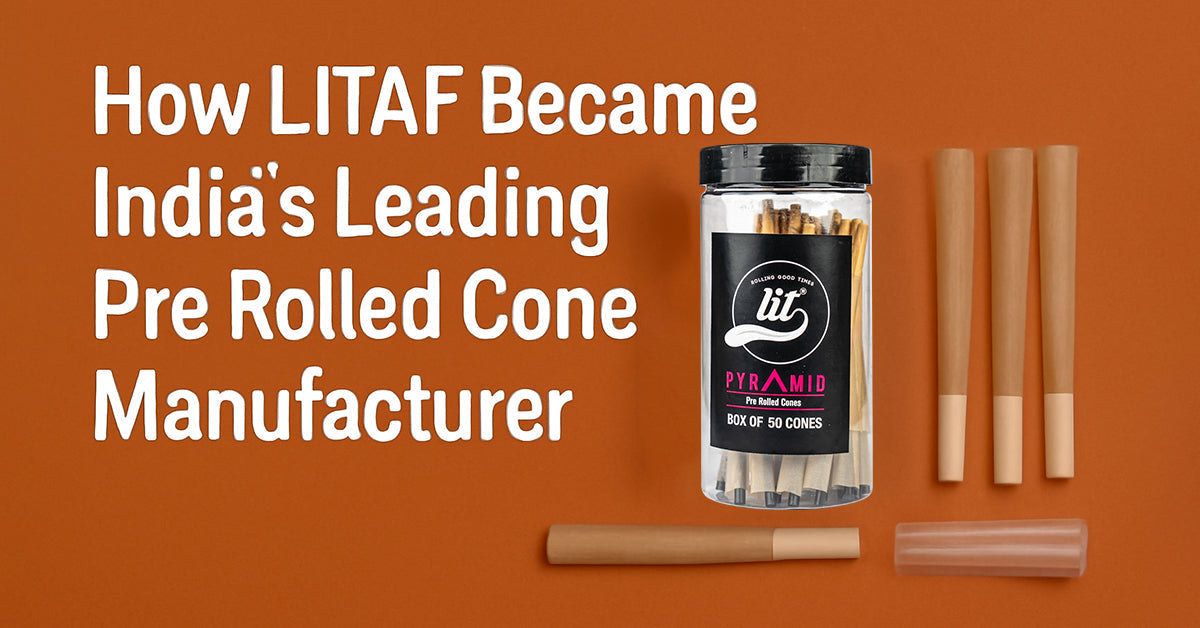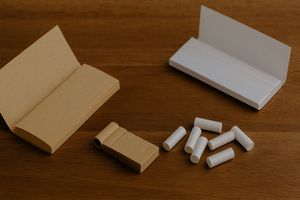1. Why Pre-Rolls Are Suddenly Everywhere
Walk into any music festival, hostel common room, or hip café in 2025 and you will spot the same ritual: a neatly packed cone pulled from a hard-shell tube, sparked in seconds. Convenience, cleaner paper, and a no-mess experience have turned pre-rolled cones from niche import to mainstream staple.
Recent research puts the global pre-rolled cone market at US $297 million in 2023, racing toward US $1.1 billion by 2029 at nearly 25 percent CAGR. India’s share is small but surging, helped by rising disposable income, e-commerce penetration, and a cultural shift toward premium accessories.
2. What Exactly Is a Pre-Rolled Cone?
A pre-rolled cone is a funnel-shaped rolling paper that has already been glued, rolled, and fitted with a filter tip. Consumers simply fill, tamp, and twist—no rolling skill required. The format demands manufacturing precision: paper weight (usually 12-14 gsm), adhesive line, seam tightness, and filter crimp must all be consistent or the cone can canoe, tear, or taste bitter. That technical barrier has created room for a new kind of business in India: the pre rolled cone manufacturer.
3. Market Forces Shaping Indian Production
|
Driver |
Evidence |
Outcome for Manufacturers |
|
Eco-friendly demand |
Rolling-paper market projected to reach US $2.1 billion by 2032 on the back of unbleached and hemp variants |
Need FSC-certified pulp, chlorine-free bleaching |
|
Convenience culture |
Urban consumers prefer ready-to-fill cones over hand-rolling |
Automated cone lines gain share |
|
D2C e-commerce |
Gen Z buys accessories online; shipping promises matter |
Local plants cut delivery time and duty costs |
|
Lifestyle branding |
Accessories are fashion statements |
Visual design and merch bundles drive margin |
4. Enter LITAF: From Passion Project to Production Powerhouse
LITAF began as a small shop selling imported rolling papers. Founders soon realized reliable supply was scarce and margins were thin, so in 2022 they invested in a semi-automated cone line on the outskirts of Jaipur. That decision turned LITAF into a home-grown pre rolled cone manufacturer able to hit three crucial benchmarks:
-
Quality: Food-grade gum, laser-sealed seams, and paper from FSC-certified European mills.
-
Cost: Local assembly keeps retail price under ₹6 per cone even after GST.
-
Speed: Two-day shipping to metros thanks to hubs in Mumbai and Bengaluru.
4.1 Manufacturing Workflow (Simplified)
-
Paper slitting into cone sheets (tolerance ±0.1 mm)
-
Cone rolling on semi-automatic mandrels
-
Filter crimping and insertion
-
Laser seal of paper seam
-
Batch testing for airflow and structural integrity
-
Vacuum-sealed packaging with 85 percent statutory health warning
4.2 Brand Playbook
-
Design drops: Limited-edition artwork every quarter keeps collectors engaged.
-
LITFAM loyalty: Points for unboxing videos and referrals boost repeat rate (now 43 percent).
-
Educational content: “Rolling 101” reels show novices how to pack cones without waste, solving a real pain point and earning trust.
5. Regulatory Snapshot
All tobacco-based cones fall under the Cigarettes and Other Tobacco Products Act (COTPA). Herbal or hemp cones sit in a regulatory grey zone but still face strict packaging rules: 85 percent health-warning coverage, no lifestyle claims, no celebrity endorsements, and GST compliance. LITAF complies by keeping marketing focused on design, sustainability, and community—not on health or social status.
6. Competitive Landscape
|
Brand |
Strength |
Gap vs LITAF |
|
RAW (imported) |
Legacy reputation, ultra-thin paper |
Higher price after import duty; slower restock |
|
OCB |
Widely available booklets |
Limited pre-roll SKUs in India |
|
Local unbranded cones |
Low price |
Inconsistent paper weight and gum line |
|
Boutique D2C labels |
Niche flavors |
Small batch size, stock-outs |
By controlling its own line and emphasizing lifestyle design, LITAF occupies a sweet spot between reliability and cultural relevance.
7. Future Outlook for Indian Producers
-
Automation upgrades: Fully automated cone lines could cut per-unit cost another 18 percent.
-
Sustainability pressure: Expect GST incentives for biodegradable filters and recyclable packs.
Cross-category play: Pre-roll brands will increasingly launch apparel, NFTs, and music collabs to extend lifetime value.

